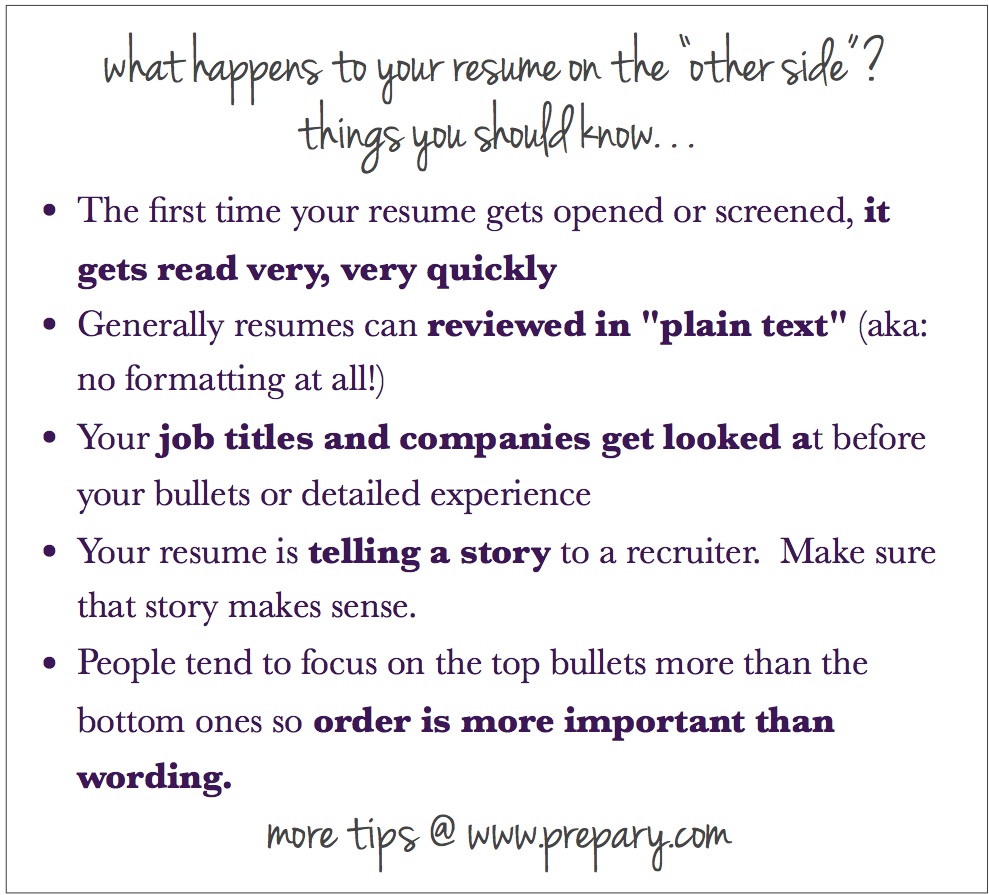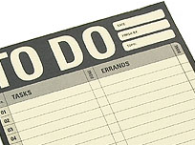Welcome to the first post of our new series around debunking common job search myths. I thought this would be a great section to add to the Prepary after having so many conversations on job search related topics that ended in “wow, I thought I should do the opposite of that!”
Resume Myth: You must scrutinize every word, bullet, and formatting detail on your resume. This will impact whether or not you get called in for an interview.
What The Prepary says: While how you describe your experience is important, the way your resume comes across holistically, and at “first glance” is hands down more important. You don’t need to spend hours rephrasing one line of text 100 times. Instead you should focus on what “bigger picture” story your resume is telling.
Throughout my career as a recruiter this is something I would tell friends constantly – “don’t get hung up on those 3 words in that one bullet”, “don’t worry if that spacing is half a centimeter off”, etc. But despite that, people are so hung up on the details, and as a result, spend way more time slaving over their resumes than they need to.
Should your resume be clearly and cleanly formatted? Yes. Should there be typos? No. I’m not saying that you shouldn’t put a ton of effort into every single part of your resume. Of course you should.
But here are some things you should know about what happens to your resume “on the other side”.

- The first time your resume gets opened or screened, it gets read very, very quickly. I don’t know many recruiters that read every line of every resume during the first pass at a pile of resumes. Once they’ve narrowed them down, sure they will, but not right away.
- Generally resumes can reviewed in “plain text” (aka: no formatting at all!) If you’ve uploaded your resume into a system, then it’s probably no longer looking gorgeous. So content is king. Also, when you do upload your resumes into a system, make sure it’s not looking “jumbled”. This means you may need to recopy and paste but it’s worth the effort – what you’re seeing is what they’re seeing.
- Your job titles and companies get looked at before your bullets or detailed experience – think of them as the gateway. If you have a funky job title that may not mean anything to anyone outside of your company, put a very brief description next to it. One of my past titles was “Talent Associate” and that was a bit vague so next to it I might add “Recruiting and HR role for top fashion retail company” to make it more clear.
- Your resume is telling a story to a recruiter. Make sure that story makes sense. This may mean your don’t list your experience chronologically. It is totally ok to have an “experience” section with experience relevant to the job you are applying for and then an “additional experience” section with your babysitting gig you had one summer.
- People tend to focus on the top bullets more than the bottom ones so order is more important than wording. If you are applying for a social media role and updating the company’s Twitter and Facebook was one of your esponsibilities in your last job, put that bullet first.
Hopefully these points have helped debunk the myth that wording is the most important thing to focus on with a resume. In reality, of course it matters, but these other qualities are way more impactful and great things to look out for!





